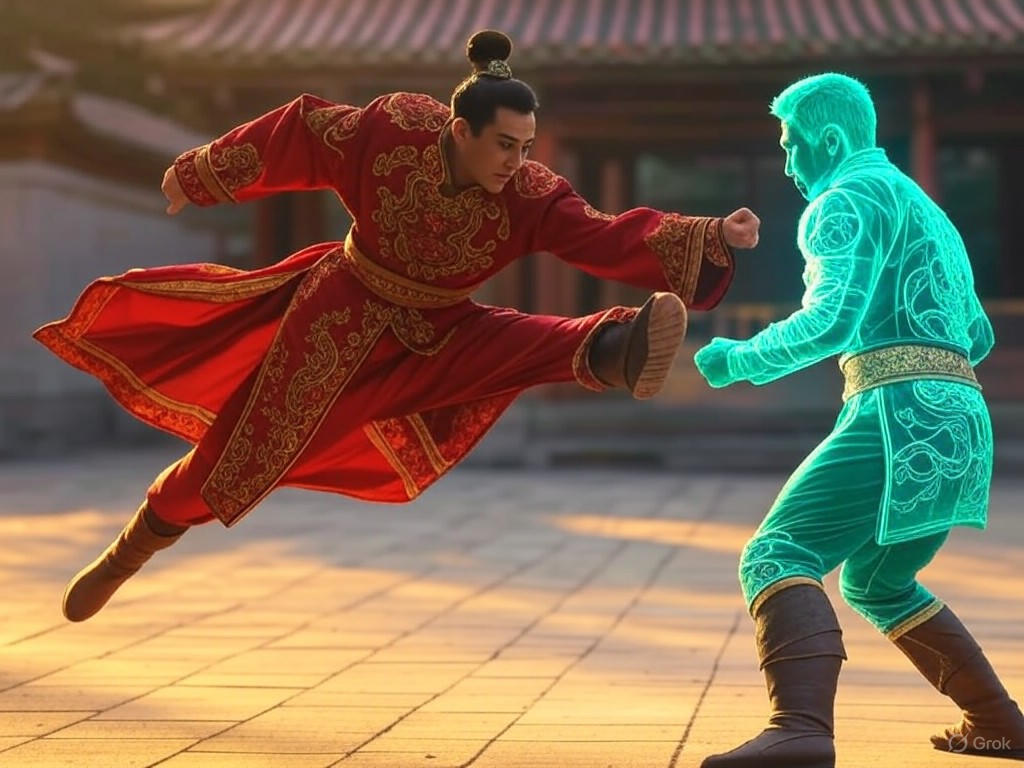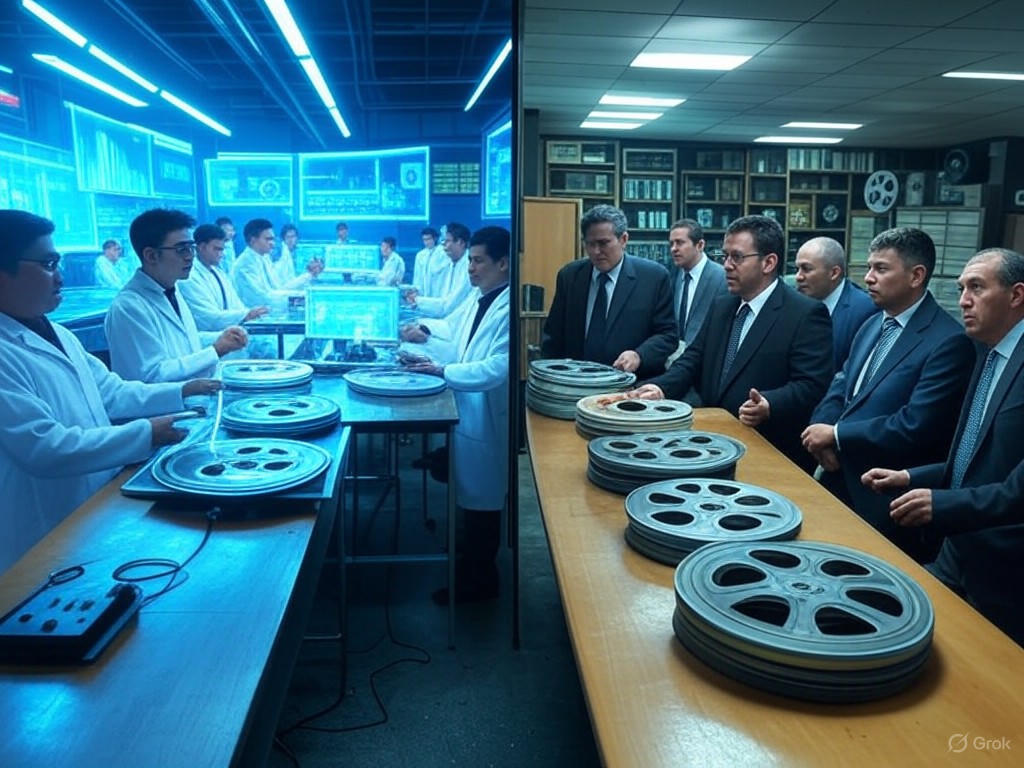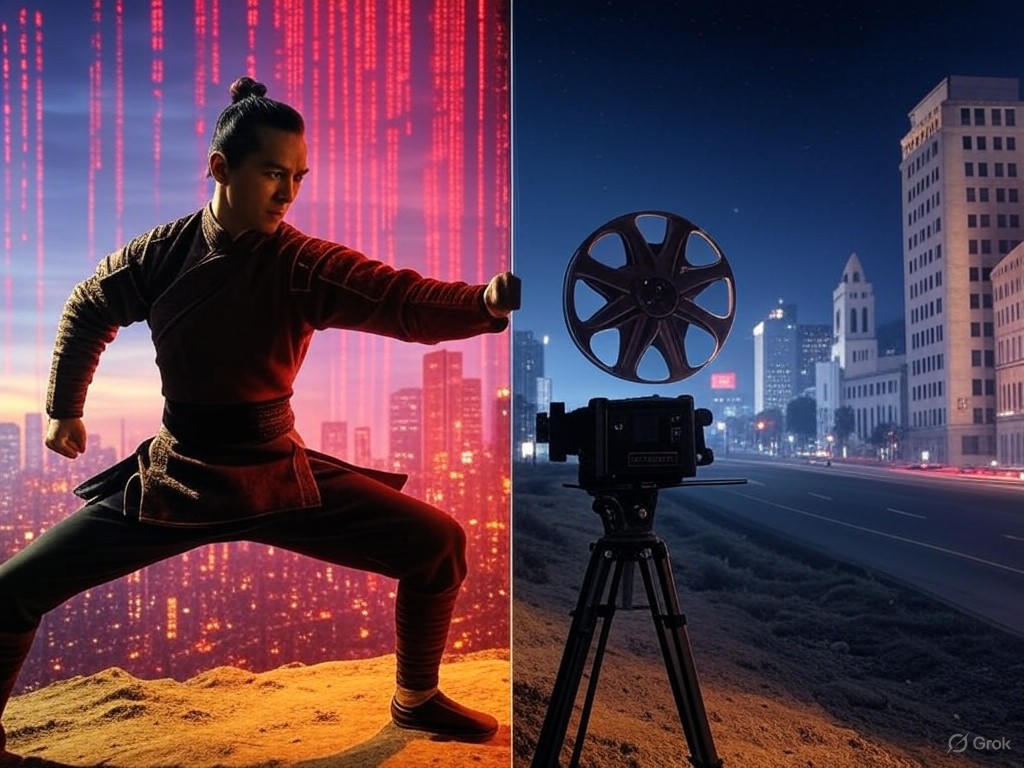AI in Hollywood: China’s Bold Leap Forward
In the ever-evolving landscape of cinema, technology has always been the uninvited guest at the director's table—sometimes a boon, sometimes a bane. Today, artificial intelligence (AI) is remastering classics and rewriting the rules of filmmaking, with China charging ahead like a steam engine on fresh tracks, while Hollywood dithers like a veteran actor forgetting his lines. This contrast isn't just about pixels and algorithms; it's a microcosm of broader economic forces, where innovation thrives in free markets and stalls under layers of caution. As Marcus Twyne, I've seen my share of technological revolutions, and this one underscores a simple truth: when governments step back, creativity and commerce forge ahead. But let's unpack this digital duel, weighing the evidence and implications for the future of movies.
China's AI Revolution in Cinema
China's embrace of AI for film remastering is nothing short of audacious, transforming dusty martial arts epics into hyper-realistic spectacles that captivate new audiences. Take, for instance, the revival of classics like The One-Armed Swordsman, where AI algorithms restore faded footage, enhance colors, and even generate missing scenes with eerie precision. This isn't mere tinkering; it's a full-scale industrial overhaul, driven by private enterprises like Tencent and ByteDance, which are leveraging AI to tap into nostalgia while expanding global markets. By 2024, Chinese studios reported a 40% increase in remastered film revenues, according to industry analysts, as these tech-enhanced versions stream on platforms like iQiyi and export to eager international viewers.
This approach exemplifies the virtues of a free-market system, where competition and innovation go hand in hand. Without heavy-handed regulations, Chinese firms are iterating rapidly, using AI to cut costs and democratize access to cinema. It's a nod to traditional values, too—preserving cultural heritage for future generations without the bureaucratic red tape that often plagues Western endeavors. Yet, as with any frontier, there are risks. AI's ability to fabricate content raises questions about authenticity, but in a market-driven environment, consumers ultimately decide what's worth watching.

An AI-restored scene from a classic Chinese martial arts film, showcasing vivid details that breathe new life into timeless storytelling.
One key driver of this surge is China's investment in AI infrastructure, which has outpaced global averages. As reported by the Wall Street Journal, Beijing's tech sector allocated over $15 billion in 2024 alone for AI applications in entertainment, fostering an ecosystem where startups can experiment freely. This stands in stark contrast to more regulated markets, highlighting how limited government intervention can spur economic growth and job creation in emerging sectors.
Hollywood's Reluctant March into AI
Across the Pacific, Hollywood's relationship with AI is more tentative, akin to a cautious investor dipping a toe into volatile stocks. Major studios like Disney and Warner Bros. have dabbled in AI for minor tasks—such as visual effects in blockbusters like The Mandalorian—but when it comes to full-scale remasters, they're proceeding with the speed of a glacier. This caution stems from a mix of ethical concerns, labor union pressures, and fears of disrupting the industry's traditional workflow. Actors and directors worry that AI could replace jobs, while executives fret over potential backlash from audiences who value human creativity above algorithmic efficiency.
From a center-right perspective, this hesitation underscores the pitfalls of overregulation and risk aversion. Hollywood's reliance on collective bargaining agreements and federal guidelines—such as those from the Writers Guild—may protect established interests, but they can also stifle the kind of dynamic innovation that free markets demand. Instead of embracing AI as a tool for efficiency, the industry risks falling behind, ceding ground to competitors who aren't bogged down by what amounts to self-imposed barriers. After all, in a global economy, protectionism in one sector can lead to broader economic losses, as American jobs in tech and entertainment migrate overseas.

Studio executives in a heated discussion over AI integration, symbolizing the tension between tradition and technological progress in American cinema.
Data from the IEEE Spectrum supports this view, noting that while AI could automate up to 30% of post-production tasks, U.S. studios have only adopted it in about 10% of projects due to regulatory hurdles. This lag isn't just about technology; it's economic. Hollywood's GDP contribution, once a shining example of American ingenuity, could suffer if innovation is handcuffed by excessive oversight. Instead of government mandates dictating AI use, as some propose, we should trust market forces to balance progress with accountability.
Shaping the Future of Cinema: Analysis and Implications
The divergence between China's AI prowess and Hollywood's cautionary tale raises profound questions about the future of movies and technology. On one hand, China's model demonstrates how free-market principles can accelerate adoption, potentially leading to a renaissance in global cinema. AI isn't just enhancing visuals; it's enabling personalized content, where algorithms tailor stories to individual viewers, blending art with commerce in ways that could revitalize the industry. Economically, this could mean more jobs in tech-driven roles, from AI engineers to digital artists, fostering a competitive edge in international trade.
Hollywood, meanwhile, risks obsolescence if it doesn't adapt. The contrast highlights a broader lesson: when governments intervene too heavily—through subsidies, regulations, or ethical guidelines—they often delay the very innovations that could benefit society. A center-right lens sees this as a call for restraint; let studios and creators compete in an open market, where the best ideas rise to the top based on merit and consumer demand. As Variety points out in their analysis of international film trends, countries with lighter regulatory burdens are already dominating AI applications, potentially reshaping cultural exports and soft power dynamics.
Yet, we must acknowledge the human element. Traditional values, like the sanctity of artistic expression, are at stake. AI might remaster a film, but can it capture the soul of a story? Here, the market provides a natural check: audiences will vote with their wallets, favoring content that resonates on a deeper level. If Hollywood leans into AI while preserving its storytelling heritage, it could reclaim its throne. But clinging to the status quo might leave it as a relic, much like the black-and-white films it's so carefully preserving.
The Evidence Behind the Scenes
To ground this discussion, let's turn to the data. A report from the Brookings Institution estimates that AI could add $10 billion to the global film industry by 2030, with China poised to capture a lion's share due to its aggressive adoption. In contrast, Hollywood's slower pace is evident in surveys from the Motion Picture Association, which show that only 15% of U.S. productions incorporate advanced AI, compared to 45% in Asia. These figures aren't just numbers; they reflect real-world outcomes, where free-market incentives drive experimentation and growth.

A conceptual map illustrating China's lead in AI film technology versus Hollywood's more conservative footprint, highlighting competitive dynamics.
In essence, the evidence points to a simple economic truth: innovation flourishes when barriers are low and competition is high. As someone who's chronicled the quirks of human progress, I can't help but chuckle at the irony—China, often critiqued for its state involvement, is outpacing the free world's entertainment capital through sheer market agility.
Conclusion: Letting the Market Call the Shots
As we stand at this cinematic crossroads, the future of movies hinges on embracing AI without forsaking what makes them magical. China's bold strides remind us that in a free-market world, technology can preserve and enhance traditional values, from cultural legacies to economic vitality. Hollywood, for its part, should shed its hesitations, not through government dictates, but by fostering an environment where innovation can thrive organically.
Ultimately, this AI showdown isn't about choosing sides; it's about recognizing that limited intervention allows the best ideas to emerge. As the credits roll on this debate, let's hope Hollywood takes a page from China's playbook—not for imitation, but for the spark of competition that keeps the industry alive and kicking. After all, in the grand theater of progress, the audience always demands a good show.

